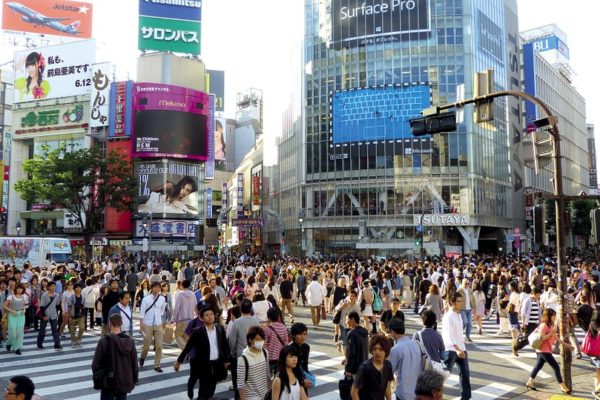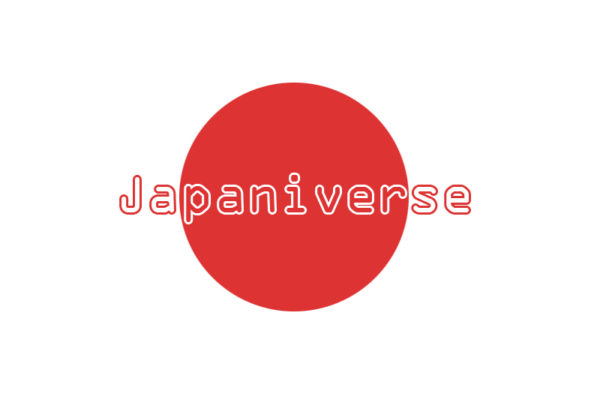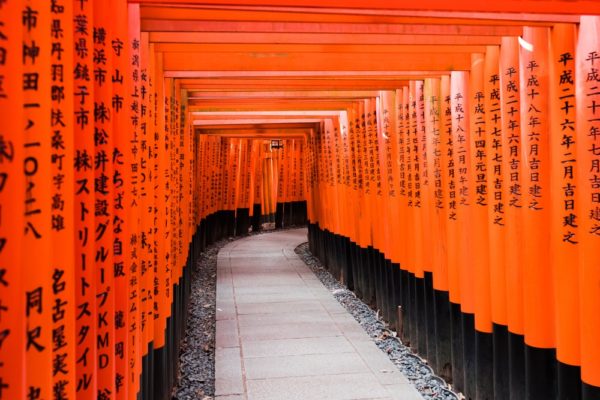Japan’s tourism industry has seen record-breaking numbers in the last couple of years. In 2017, it welcomed about 28.7 million visitors, and in 2018, it attracted about 30 million tourists, an 8.7% increase from the previous year.
In 2020, it expects another major tourism surge, as its capital city, Tokyo, will host one of the world’s most anticipated multi-sport events in the summer — the 2020 Summer Olympic Games.

From July 24, 2020 to August 9, 2020, athletes from all over the world will compete in 33 different sports disciplines to bring honor and pride for their countries. If you want to go to Japan to watch your favorite players in action and support your national teams and representatives, you should start planning your trip now.
How can I get tickets to the Tokyo 2020 Olympic Games?
Getting a ticket to watch a game in the Tokyo 2020 Olympics is a bit tricky.
If you are a Japanese resident, you can visit the official website of the Tokyo 2020 Olympic Games, and join the ticket lottery. The first lottery application period was opened from May 9, 2019 to May 28, 2019, and the results were announced on June 20, 2019. If you were unlucky, you can try again later this year or in early 2020, when the first-come-first-served ticket sale period opens in the autumn of 2019 and the last-minute ticket sale period opens in the spring of 2020.
If you are a non-Japanese resident, you have to reach out to an Authorized Ticket Reseller in your home country to get a ticket. Read the Tokyo 2020 Ticketing Guide to learn more.
How much do the tickets to the Tokyo 2020 Olympics cost?
Ticket prices for the Tokyo 2020 Olympics range from 3,000 yen to 110,000 yen, depending on various factors, such as venue, seat type, sport, and stage of competition.
Below are some notable Tokyo 2020 Olympic events and their ticket prices:
| SPORT/EVENT | TICKET PRICE RANGE |
| Opening ceremony | From 12,000 yen to 300,000 yen |
| Closing ceremony | From 12,000 yen to 220,000 yen |
| Men’s basketball | From 5,800 yen (preliminary games) to 108,000 yen (final game) |
| Football | From 5,800 yen (preliminary games) to 67,500 yen (final) |
| Tennis | From 4,000 yen (preliminaries) to 54,000 yen (final) |
| Volleyball | From 4,000 yen (preliminary games) to 54,000 yen (final) |
| Aquatics (Swimming) | From 5,800 yen (preliminaries) to 108,000 yen (final) |
| Athletics | From 3,000 yen (preliminaries) to 130,000 yen (final) |
| Baseball | From 4,000 yen (preliminary games) to 67,500 yen (final) |
| Gymnastics | From 3,500 yen (preliminaries) to 72,000 yen (final) |
| Hockey | From 2,500 yen (preliminary games) to 10,000 yen (final) |
| Table tennis | From 3,500 yen (preliminaries) to 36,600 yen (final) |
CLICK HERE to see the full Tokyo 2020 ticket price list.
When should I book flights to Japan?
The costs of flights to Japan vary, depending on where you are coming from, when you are visiting, and other factors. Usually, they are more expensive in peak tourist seasons, such as during the cherry blossom or sakura season, autumn foliage season, national holidays, and festivals.
Because the Tokyo 2020 Olympics is a big event, you should start looking up flights to Japan now. Plane ticket prices will become much more expensive as the Tokyo 2020 Olympics gets nearer.
You can make use of plane fare aggregator and comparison websites, such as Google Flights, Momondo, and Skyscanner, to help you out.
Where should I stay?
There are several things to consider when deciding where to stay in Japan during the Tokyo 2020 Olympic Games, such as proximity to the Olympic game venues you plan to watch games at, distance to tourist sites and attractions, access to public transportation, availability of restaurants and other entertainment establishments in the area, and your budget.
In and around Tokyo, there is a good selection of five-star luxury hotels and high-end traditional Japanese inns or ryokan for those who can splurge 100,000 yen or more per night, business hotels and capsule hotels that are ideal for those with a mid-range accommodation budget of around 10,000 yen per night, and hostels that are highly recommended for travelers with a lodging budget of 3,000 to 5,000 yen per night.
You can use Rakuten Travel, Japanican, Japanese Guest Houses, Booking.com, or Agoda.com to find yourself a place to stay in Japan that fits your preferences.
What should I pack?
Summer in Japan, especially in the Tokyo area, can be quite hot and humid, with daily temperatures that range from low to high 30s Celsius, so you have to pack clothes that are light and breathable for the Tokyo 2020 Olympic Games.
In addition, do not forget to have deodorant to fight off body odor, sunscreen and a hat to protect against the sun, water to keep you hydrated, a face towel to wipe your sweat off of your face and neck, and a fan to cool you off.
You also have to make sure that your shoes offer optimal support, as you will surely do lots of walking.
How can I get around?
Japan is home to one of the best public transportation networks in the world, so you should not worry so much about how to travel from one point to another while in the country.
In Tokyo, you should take advantage of its extensive metro, subway, train, and bus services that conveniently link the metropolis’ areas and provide easy access to the different Tokyo 2020 Olympic venues (you can find more information by CLICKING HERE) and various points of interest.
If you need to travel long distance, there is the Shinkansen or the Japanese bullet train, which travels in superfast speeds and offers comfortable seats. Traveling from Tokyo to Osaka, for instance, only takes two hours and 30 minutes via the Shinkansen.
What mobile apps should I download before my trip to Japan?
If you have never been to Japan before and your Tokyo 2020 Olympic trip will be your first time there, it is normal to be overwhelmed, anxious, or confused the moment you land.
To help you get through the language barrier and culture shock, and have more fun and less stress during your trip, you should download useful Japan travel mobile apps, such as:
- Google Maps (Android | iOS) – for directions, transportation options, and navigation
- Hyperdia (Android | iOS) – for transportation routes, timetables, etc.
- Navitime (Android | iOS) – for transportation routes, travel tips and recommendations, etc.
- Google Translate (Android | iOS) – for Japanese to English (and vice versa) translations
To use these apps you will require a SIM card to keep you connected all over Japan. Check out our article on How Japan SIM Cards to compare to find out which SIM is best for you.



